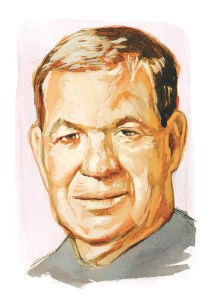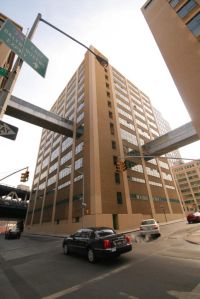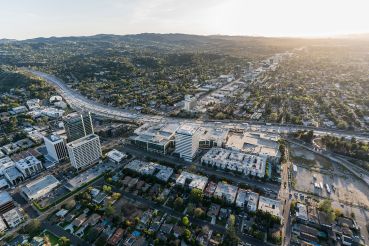Joel Picket: Kenneth R. Gerrety Humanitarian Award Winner
By Toby Salinger January 15, 2014 3:00 pm
reprintsJoel Picket, the chairman and chief executive of the development and construction institution Gotham Organization for nearly five decades, is more likely to wax nostalgic about American history than Gotham’s portfolio of 30,000 residential units and 2.8-million-square-foot retail and residential portfolio. When it comes to Gotham, he’s focused on the matter at hand. “Your favorite one is the one that you’re doing at the present time,” said Mr. Picket.
The leader of the 83-year-old, family-owned firm is this year’s recipient of the Real Estate Board of New York’s Kenneth R. Gerrety Humanitarian Award for community service. Mr. Picket’s civic volunteer work at organizations such as Beth Israel Medical Center (where he has had a longtime role on the board) and charitable giving (like his support for the New York Philharmonic) reflect the way Gotham projects strengthen the city. And even though he has led the company since 1965, this history buff is still curious how he can help.

“I do these things when I can lend my expertise and when I can learn things I don’t know,” said Mr. Picket.
Mr. Picket’s 30-year tenure at Beth Israel continues under its network’s September 2013 merger with Mt. Sinai Medical Center, a pattern of service that coincides with the government-assisted hospitals and housing construction that marked the first phase of his tenure at Gotham. Mr. Picket’s first major project after assuming leadership of the company was a $16 million (in 1967 dollars) new hospital building situated between the East New York, Brownsville and Canarsie sections of Brooklyn, a facility that would later be called Brookdale Hospital.
Count Mr. Picket as an interested spectator of Mayor Bill de Blasio’s efforts to rescue hospitals in low-income communities. “I understand that he wants to keep local community hospitals going,” said Mr. Picket. “You can see the positive reasons for it. But I don’t know how he’s going to do it.”
The father of two and grandfather of six collects documents from American history and serves on the board of the Foundation for the National Archives, a fundraising organization for the museum showcasing the country’s founding documents on the U.S. capitol mall. The Archives’ role in creating presidential libraries is a particular point of interest, since Mr. Picket’s own trove contains personal letters from Presidents Dwight Eisenhower and Harry Truman.
“This is a country that is really based on idea, like the Constitution and the Declaration of Independence,” he said. “And they’re housed at the Archives.”
Gotham, which Mr. Picket took over from his father, later turned into one of the city’s leading developers of residential housing and mixed-use projects. Gotham led conversions including the condos completed in 1982 at the Renwick in the East Village and the former law school building of St. John’s University in Brooklyn. More recent projects—like the 1,240 units with community spaces and an onsite grocery market at Gotham West in Hell’s Kitchen and the 586-unit, 52-story mixed-income development planned for Brooklyn’s BAM Cultural District—show Gotham’s tendency toward projects that anchor communities.
The patron of Lincoln Center’s New York Philharmonic will also open doors at Gotham’s new law school and undergraduate dorm at Fordham University’s campus next fall. “I think it’s extremely important to keep the institutions of this city strong if you’re in this business,” Mr. Picket said.
His work already strengthened another city mainstay further north: Harlem. Gotham completed senior residences in partnership with area nonprofits through the years, but the 285,000-square-foot Harlem, USA development transformed the historic 125th Street corridor—the “Main Street of Black America”—when it opened in 2000. The movie theater, clothing store and sporting goods outlet on a whole block of the famous thoroughfare brought top retailers to a neighborhood that previously had been neglected by the industry.
“We thought it was a very populated but underserved area,” said Mr. Picket.
Gotham later replicated the concept and enlarged it with the completion of DC USA, a 5-acre, 890,000-square-foot development that helped turn around Washington, D.C.’s Columbia Heights neighborhood when it opened in 2008.
Mr. Picket enjoys visiting the array of projects he has led through his time at Gotham. He has worked with his son, Gotham President David Picket, for the past 20 years, and the company continues to build and plan for the future. He said he gets satisfaction from seeing sketches become reality. “That’s one of the nicer things about this business,” Mr. Picket said. “You go through an awful lot to get to that point.”
But he also acknowledged the real estate industry’s proud history of giving back to the city, a tradition he embodies. Mr. Picket is a member of REBNY’s board of governors and executive committee, and he said the organization is both a source of information for its members and a distinguished group of real estate professionals.
“It’s a collection of a lot of the people who make this city what it is.”


